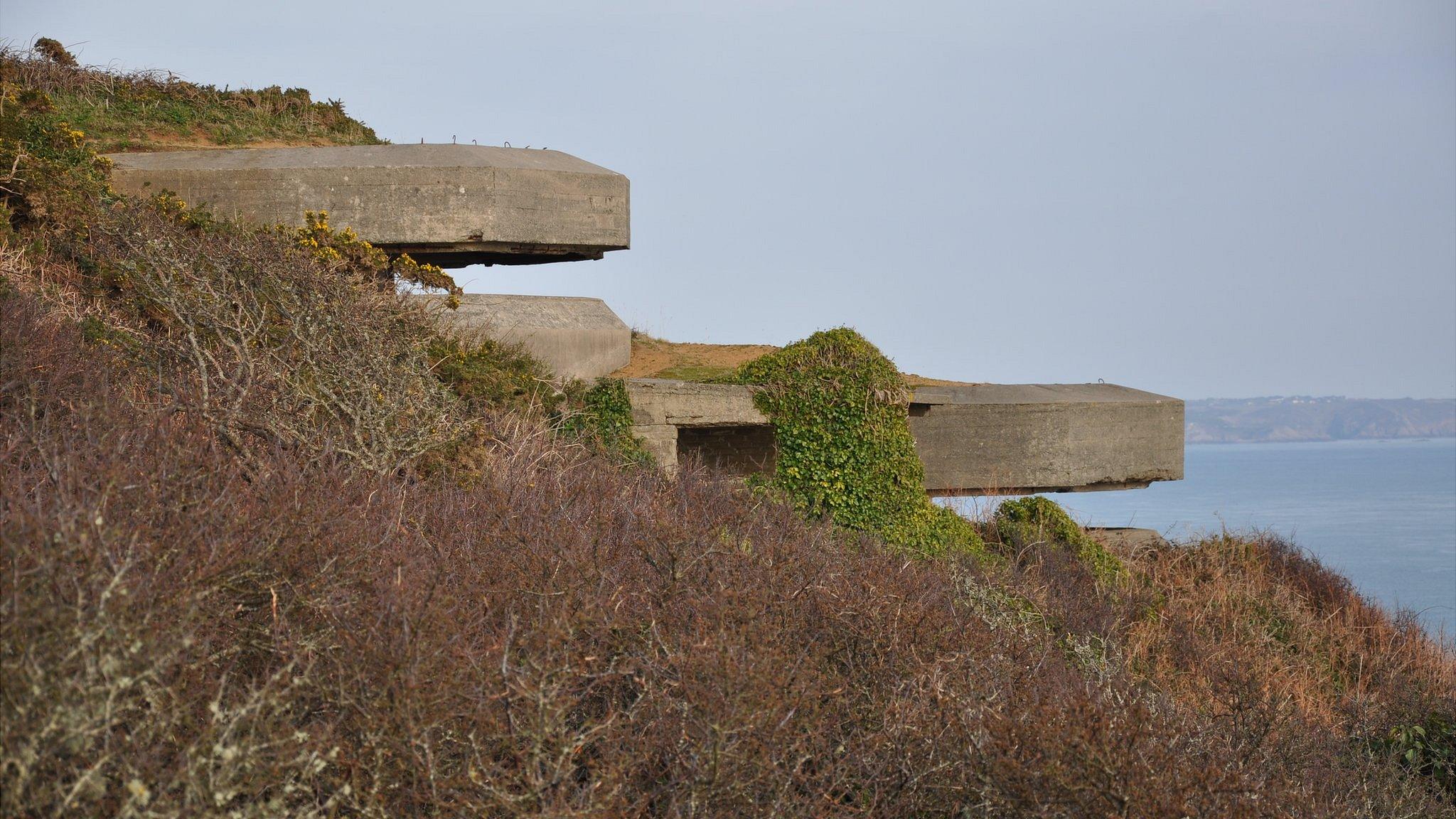Liberation 70: Channel Islanders recall liberation from Nazis
- Published
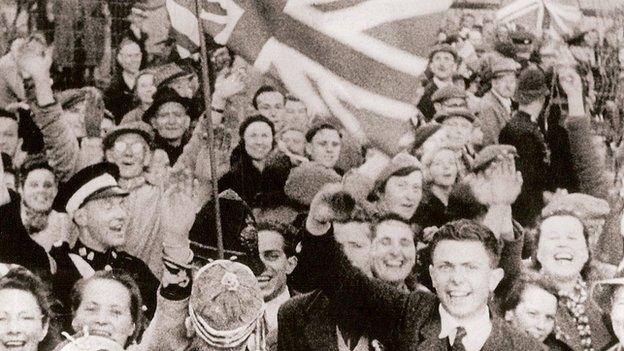
The Channel Islands were liberated by allied troops on 9 May 1945
People in the Channel Islands are celebrating the 70th anniversary of their liberation from the occupying Nazi forces in 1945. Here several islanders recount their experiences of the German occupation.
After five years of separation would you recognise your parents? It was just one of the issues facing children who returned to the Channel Islands after they had been occupied for five years.
Thousands of islanders returned after the liberation on 9 May 1945.
John Helyer was eight when he left his sister and parents behind to live with a family in Bury in north-west England.
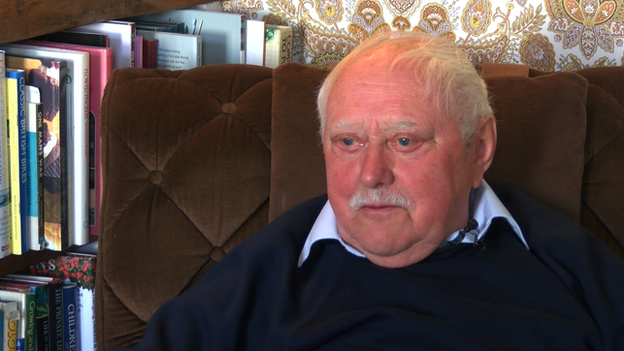
John Helyer spent five years separated from his family in north-west England
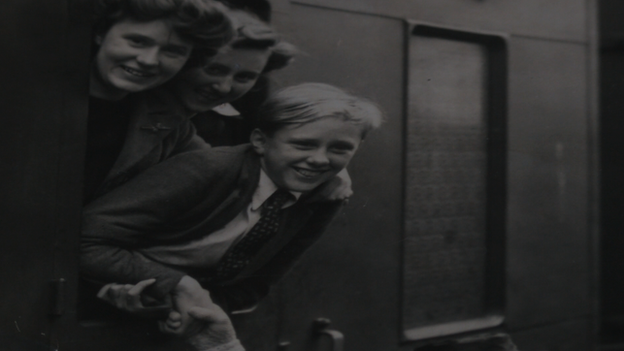
John received just three letters from his parents after being evacuated
Sharing a bed with two other evacuees in a terraced house near Manchester was a far cry from life in Guernsey.
One of the first things he remembers asking was "Where's the sea?".

Occupation of the Channel Islands
It was the only British soil to be occupied during World War II
After the German offensive raced through France, the British Government decided the islands were not defendable and demilitarised them
This was not communicated to the Germans who bombed St Peter Port Harbour and targets in neighbouring Jersey, killing 44 people
German troops landed in Guernsey by plane on 30 June 1940 - the start of five years of occupation
The islands were turned into an "impregnable fortress" on the express orders of Adolf Hitler
A fifth of all the defence works in the Atlantic Wall - a defensive line stretching from the Baltic to the Spanish Frontier - were built on the islands
Civilians were removed from Alderney and four labour camps were built on the island
The islands' governments continued under German rule, which some saw as collaboration

He said contact with with his family was limited to just three letters so when Guernsey was liberated he "couldn't wait to go home" but when he did return he felt like a stranger.
"I remember getting off the boat at St Peter Port and didn't know who my parents were, and then waiting for ages until my parents eventually recognised me.
"My parents couldn't understand me because I had a Lancashire accent and I didn't get on well with my sister either because she was used to being the only child."
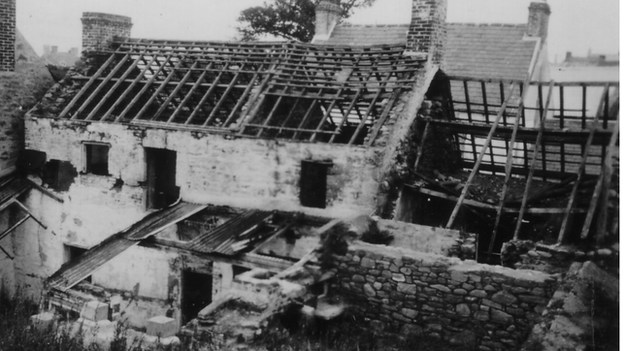
Buildings across the Channel Islands were damaged during the occupation
The occupying forces had also completely transformed the island he left.
He said: "There was barbed wire and mines everywhere, so there were places I wasn't allowed to go, but for a young boy it was an adventure."
Eric Walker, 91, still lives in Jersey 70 years after first stepping foot on the island as one of the soldiers serving in Force 135, the allied unit tasked with recapturing the islands.
He said before landing, commanding officer, Brigadier Snow, told the men: "Don't annoy the enemy, there's 15,000 of them and only 600 of you."
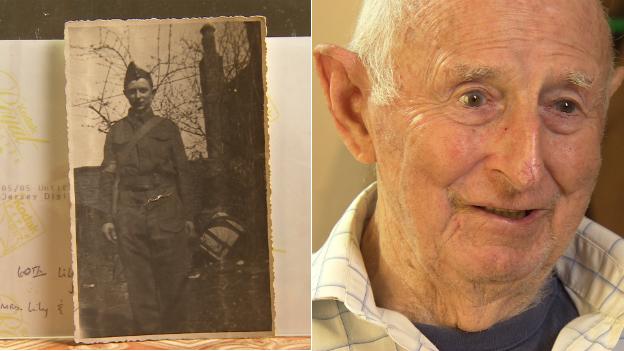
During the war Mr Walker carried out bomb disposal work in London and the south of England
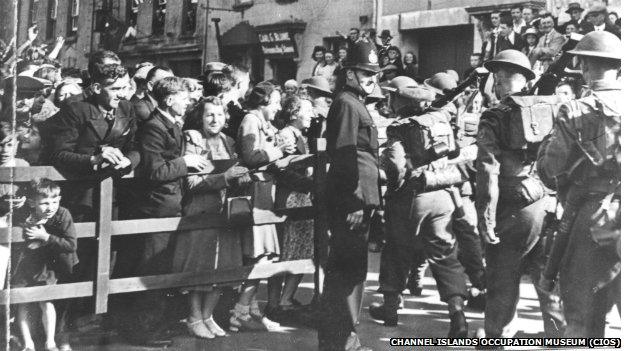
Eric Walker met his wife Sheila in Jersey on the day the island was liberated
However, Mr Walker said the surrender was peaceful: "When we arrived we were mobbed by ecstatic crowds, girls were asking for our autographs."
One of those girls was called Sheila and they later married.
"We arranged to meet that night but I had to get rid of a German booby trap, but by chance we went to the same rendezvous point the next night."
Mr Walker was a Sapper in the Royal Engineers and was tasked with helping clear the 50,000 mines left in the island by the Germans.
He was awarded a British Empire Medal for his service and became Jersey's Bomb Disposal Officer for many years.
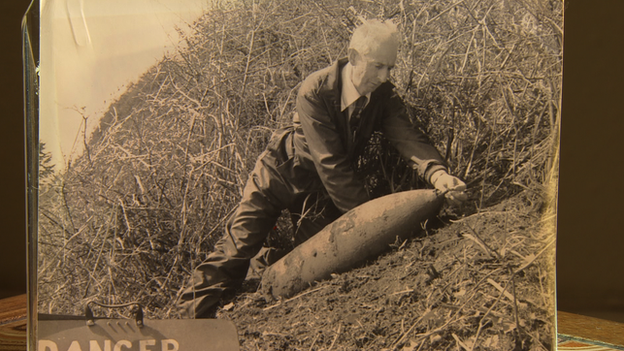
After the war Eric Walker worked as Jersey's bomb disposal officer
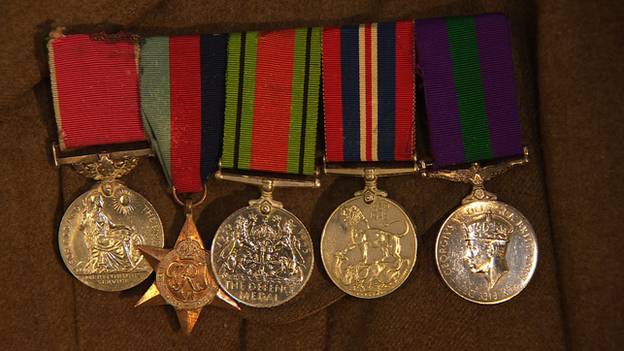
Eric Walker was awarded the British Empire Medal for his service to his country
Barbara Chiang was 12 years old when Jersey was liberated on 9 May 1945 and decided to watch the Allied ships in the harbour.
"On my left was a German soldier on duty. He was standing with his rifle at attention and watching the ships.
"I heard this clicking going on, I turned looked to my left. The German soldier had come to attention, taken his rifle off and put it on the wall, took his hat off, clicked his heels and then stood at ease.
"That was a moment I would never forget, it was a surrender and the end of the occupation."
Many islanders hid radio sets to listen to BBC broadcasts, including Jersey resident Donald Dolbel who "hid three in the rafters and the wardrobe" and said the "sound of Big Ben and Churchill's voice" got him through the war.
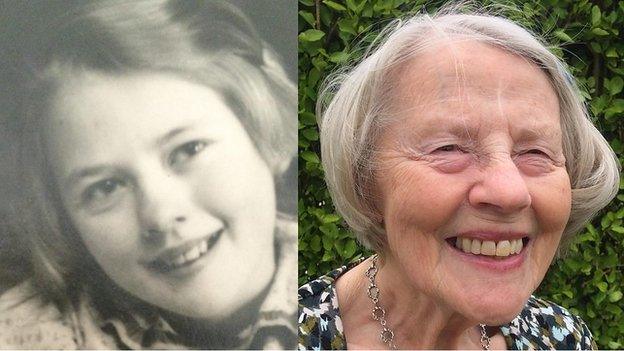
Barbara Chiang said the surrender of the Germans was a moment she would never forget
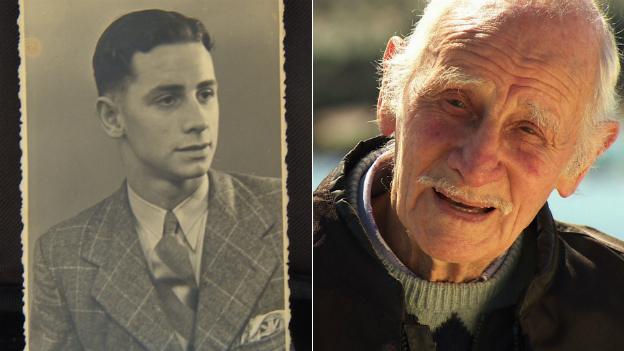
Donald Dolbel hid three radio sets from the Germans to listen to BBC broadcasts
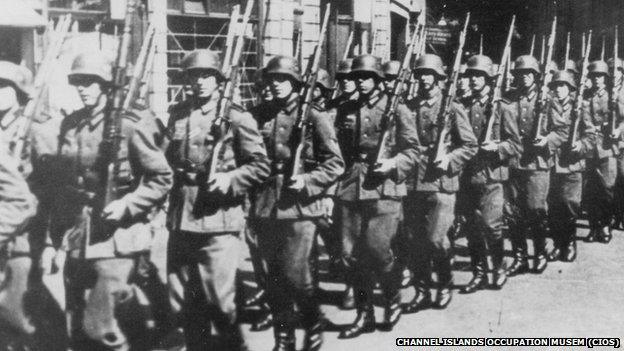
About 22,000 people evacuated the Channel Islands before German forces invaded
On Liberation Day he said he carried out an act of defiance and took down the swastika flag on the Pomme D'or Hotel.
He said: "I had a chat with some of the boys and decided to take the flag down, so I got thrown up, down comes the flag and I wiped my feet on it."
Werner Rang was a medical officer serving with the German forces in Sark during the occupation. However, he stayed on the islands after meeting his future wife Phyllis.
He said: "As we say in Germany, love takes very peculiar ways. I made the decision not to go back to Germany, I had everything I needed in my future life with you [Phyllis] as my partner."
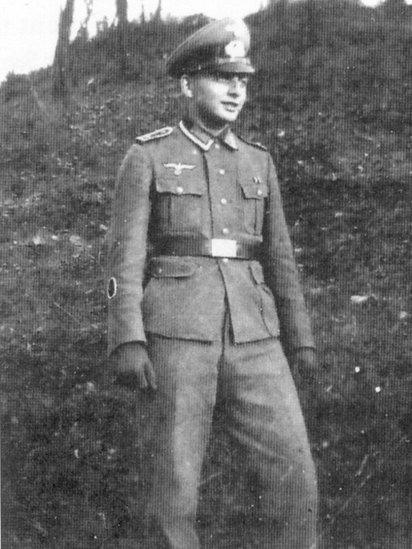
Werner rang was among 13,000 German servicemen who lived alongside islanders
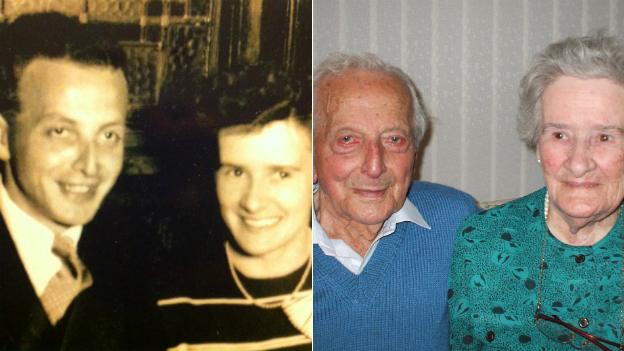
Werner Rang was sent to a PoW camp for three years before he could return to Sark and Phyllis
His wife said: "I committed the biggest crime I could possibly commit to go and marrying an enemy, but I didn't think of it like that.
"I didn't see why I had to lose a lifetime of happiness for what anyone else thought.
"We must be the only people that have something to thank Hitler for, although I hate saying it."
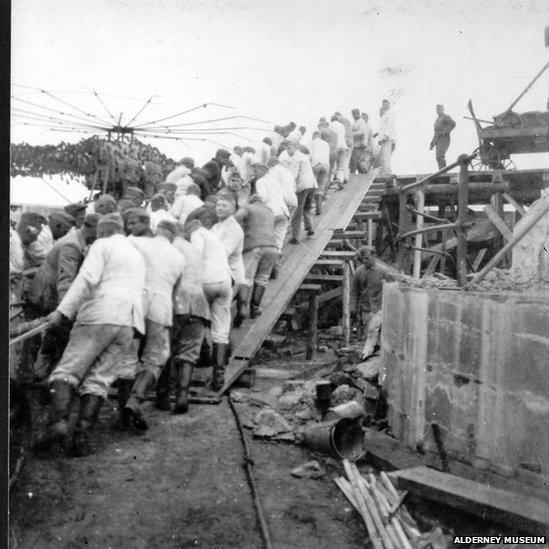
Hundreds of slave labourers died in camps in Alderney during the occupation
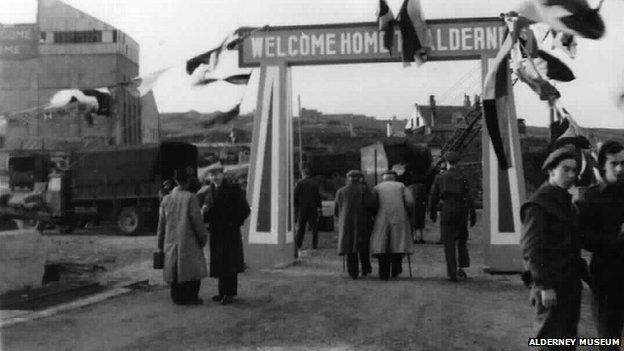
Islanders in Alderney returned to homes that had been destroyed and looted
During the occupation slave labour camps were setup on Alderney and it is estimated more than 700 people died there.
In 1940 Eileen Sykes was evacuated from the island to Scotland and returned home at the age of 18.
She said: "Seeing the houses that were partially demolished was distressing.
"I remember seeing stripy clothing still in the mud from slave workers."
Watch more stories on 'The First Days of Peace' on BBC One at 19:30 on Monday 11 May.
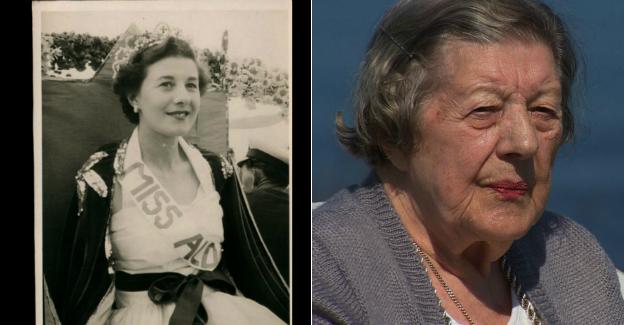
Eileen Sykes returned to her damaged home in Alderney in June 1946
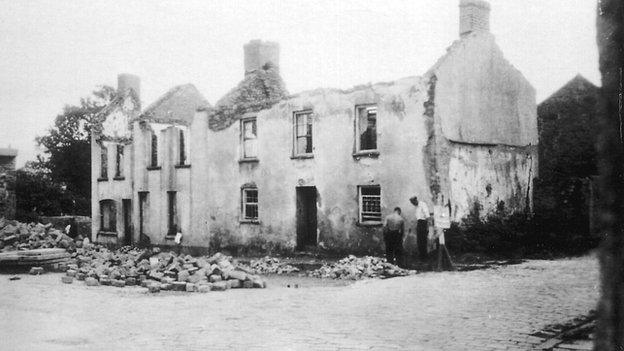
German prisoners were kept in Alderney after liberation to clear mines and repair some of the damage
- Published4 May 2015
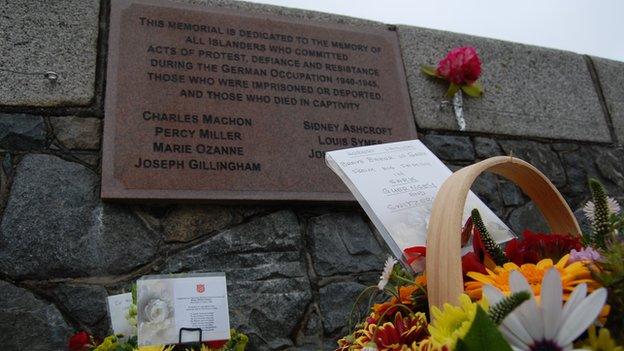
- Published10 March 2015
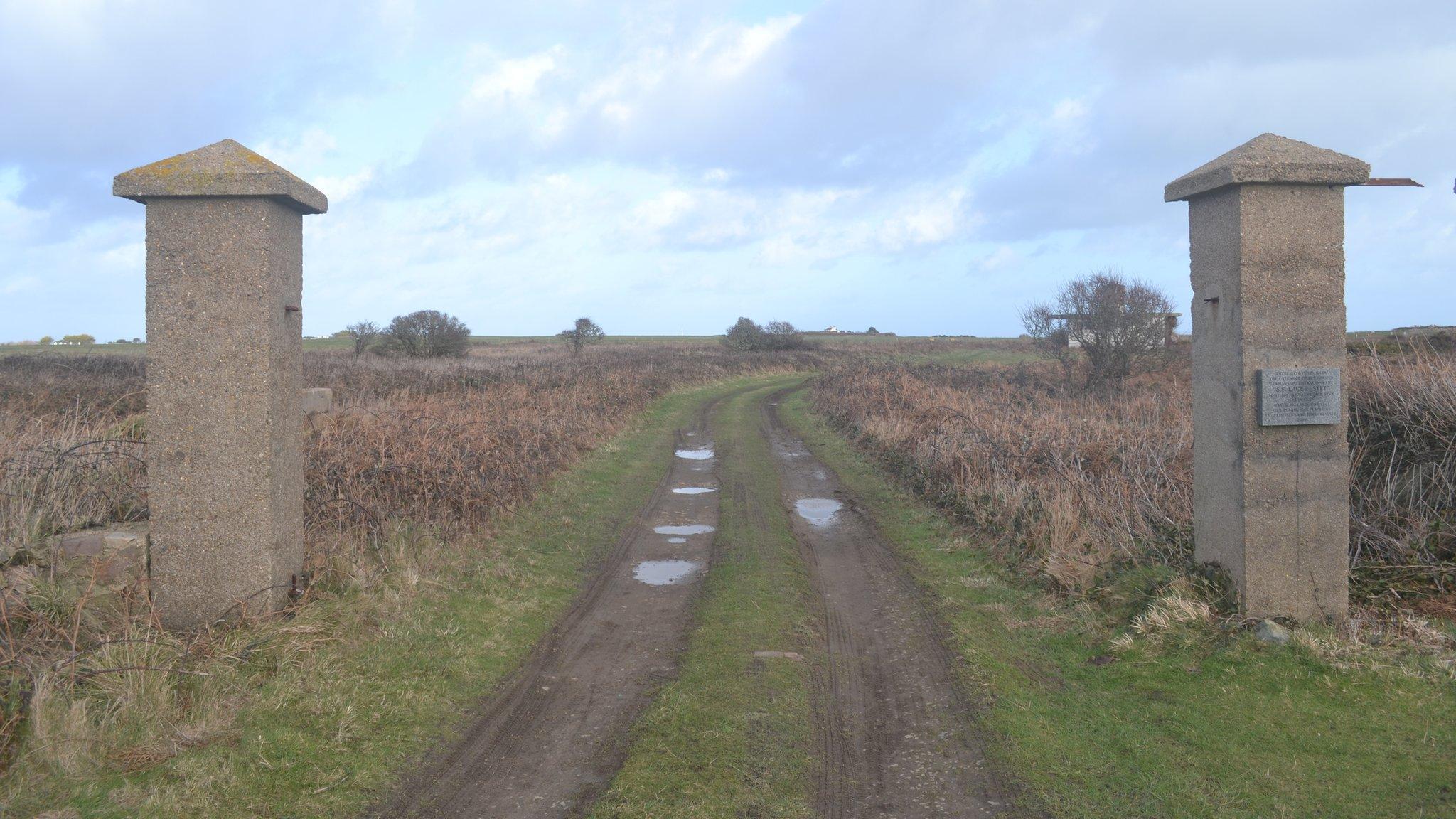
- Published30 January 2015
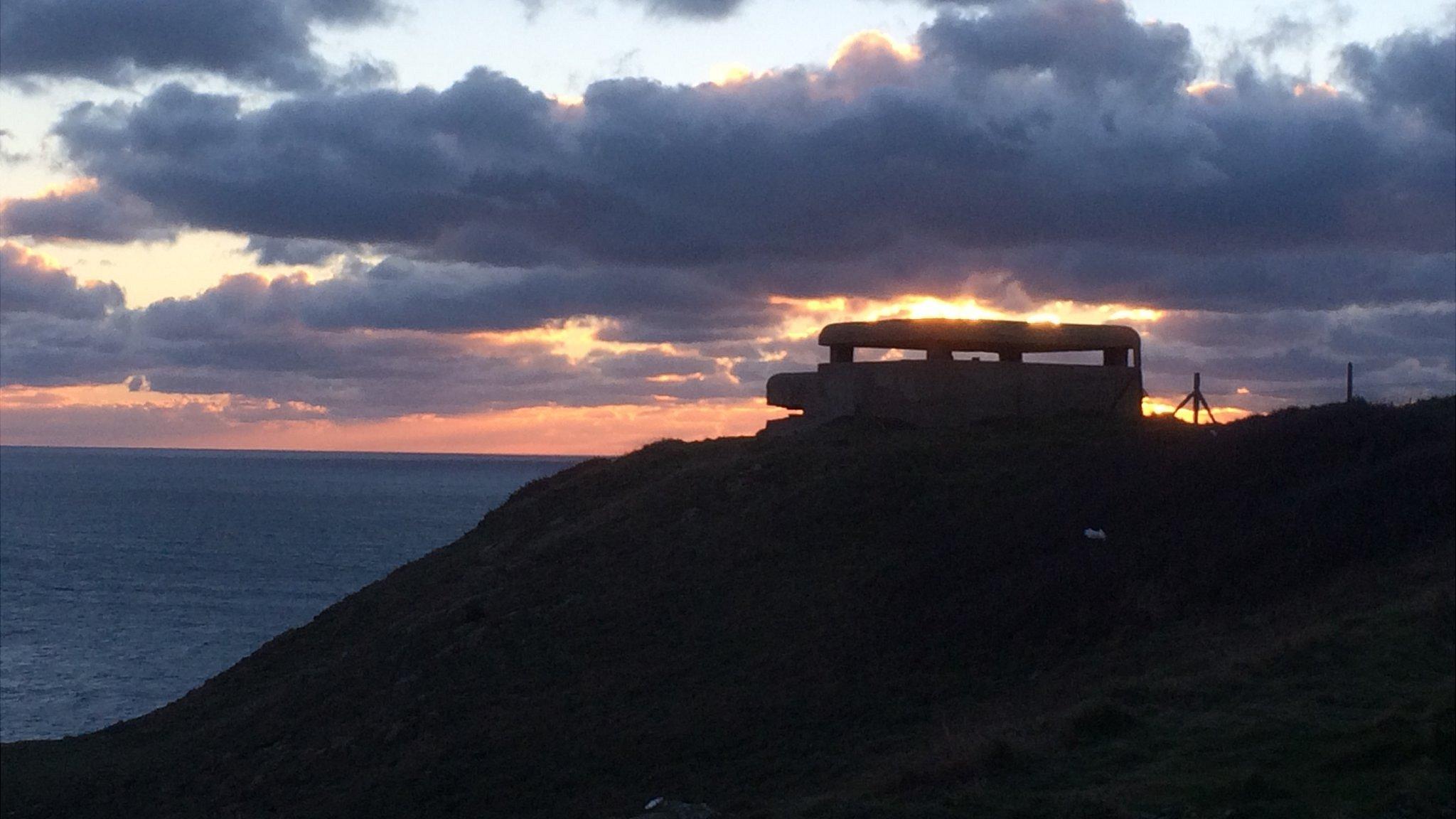
- Published6 December 2014
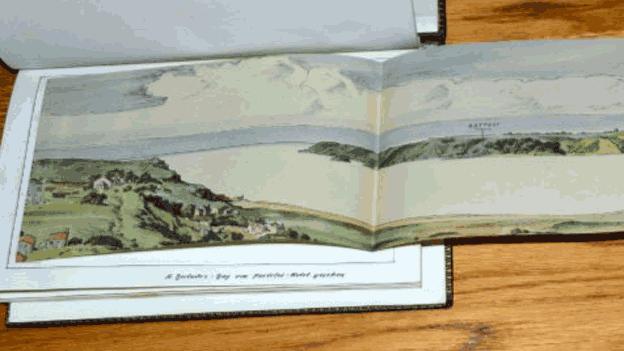
- Published3 October 2014
